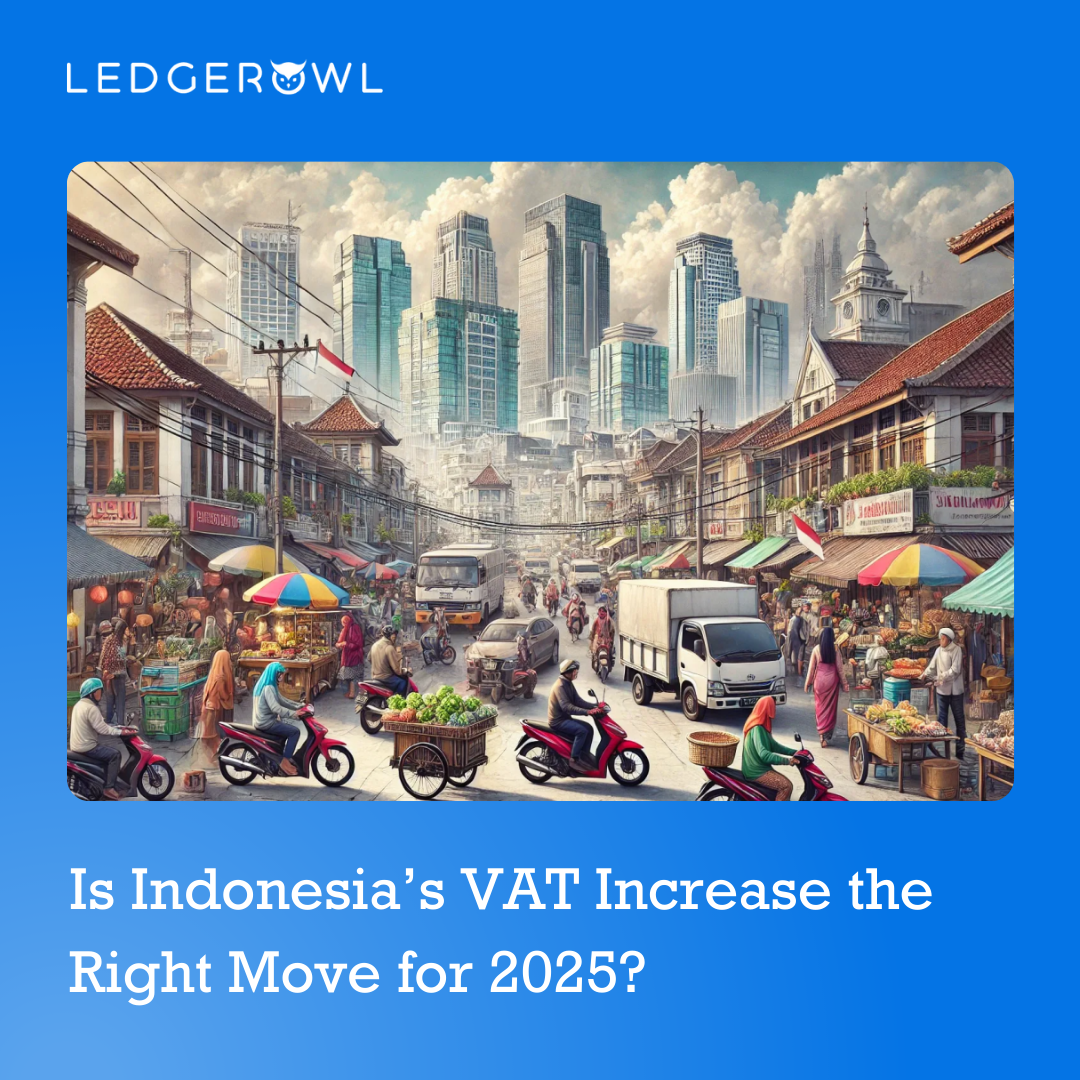As we edge closer to January 2025 news of Indonesia’s VAT increase from 11% to 12% is sparking discussions across platforms,On the surface, it seems like a straightforward move—a modest 1% hike to shore up state revenues. But as someone who’s witnessed how economic shifts ripple through businesses and consumers, I can’t help but ask: Is this really the best path forward for our country?
Let’s break it down. At 12%, Indonesia will join the Philippines in having the highest VAT rate in Southeast Asia. Meanwhile, our neighbors continue to offer far more competitive rates—Thailand at 7%, Vietnam at 10%, and even Singapore, with its high living costs, at 9%. For businesses weighing where to invest, lower tax rates can be a deciding factor. And with this increase, Indonesia risks losing its edge in attracting foreign direct investment.
This isn’t just about percentages; it’s about perception. Higher VAT suggests higher costs, and businesses, whether multinational corporations or local startups, consistently seek environments that minimize expenses. Indonesia has not been greatly successful in courting investment, and this move could further complicate that narrative.
From a fiscal standpoint, the policy aims to strengthen government revenues, potentially balancing the budget after years of increased spending.
Why aren’t we addressing the root issue—uncontrolled government spending—before resorting to imposing additional tax burdens on businesses and consumers?
Economic & Social Implications
INDEF’s study highlights the risk of economic contraction following the VAT hike. Their analysis suggests that raising the VAT rate could lead to a 0.11% decrease in GDP. Even a small decline in Indonesia’s large economy can lead to significant losses, hindering progress in key sectors.
The same study forecasts a 3.32% reduction in public consumption. With household consumption over 50% of GDP, this decline could impact industries like retail, manufacturing, and services reliant on consumer .
The increased tax burden may disproportionately affect lower-income households, exacerbating existing levels of poverty and inequality. VAT burdens low-income groups more than high-income ones, as they spend a higher proportion of income on taxed goods
Business and Consumer Impact
Higher VAT rates can lead to increased production costs, which businesses may pass on to consumers through higher prices. This scenario could dampen consumer spending, a critical driver of Indonesia’s economy. For small and medium enterprises (SMEs), the increased VAT rate presents an added layer of financial stress. Rising costs force businesses to either absorb losses or raise prices, risking customer loss in competitive, price-sensitive markets.
The VAT increase could reduce purchasing power, negatively affecting retail sectors, a cornerstone of Indonesia’s urban economy. Malls, small businesses, and retail outlets that were already grappling with post-pandemic recovery could see a downturn in sales. Lower foot traffic and reduced consumer activity can lead to job cuts, decreasing household incomes and spending capacity.
No Such Thing as Free Lunch
While the government’s intention to enhance state revenues is understandable, it’s crucial to balance fiscal objectives with the need to maintain a competitive and attractive environment for both investors and consumers.
Indonesia’s economic potential is immense, but prudent and efficient use of public funds remains a challenge. Before turning to new taxes, the government must address inefficiencies and prioritize spending on initiatives that deliver the highest value to citizens. Investments in essential infrastructure, education, and healthcare should take precedence over non-essential or poorly managed projects.
Corruption remains one of the most significant obstacles to fiscal sustainability in Indonesia. Misappropriated funds and inefficiencies caused by corrupt practices drain resources that could otherwise be used to address pressing national needs. Strengthening anti-corruption agencies, increasing transparency in public spending, and holding officials accountable are essential steps toward building a more efficient and trustworthy government. Rooting out corruption would unlock significant funds, reducing reliance on measures like VAT increases to boost state revenue
A fair and transparent justice system is critical to fostering trust among citizens and businesses. Investors, both foreign and domestic, are more likely to commit to a country where the rule of law is upheld, contracts are enforced, and disputes are resolved impartially.
Indonesia’s tax-to-GDP ratio remains low compared to regional peers, highlighting the untapped potential of a broader tax base. Instead of increasing VAT, the government should focus on improving tax compliance and integrating the informal economy into the tax system. Focusing on incentivizing compliance rather than punishment measurement should also be the focus going forward.
There is no such thing as a free lunch, but the burden of paying for it should not fall disproportionately on businesses and consumers. A balanced approach, focused on efficiency, integrity, and fairness, is the key to achieving sustainable growth and prosperity for all Indonesians.



